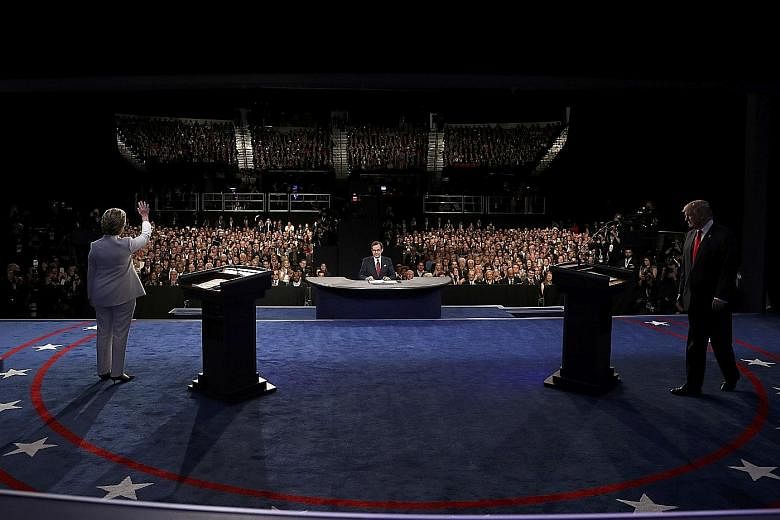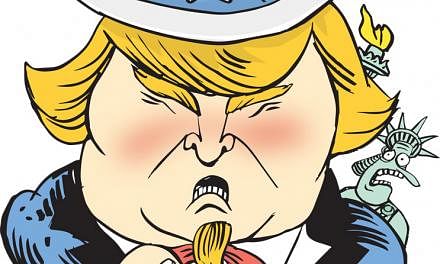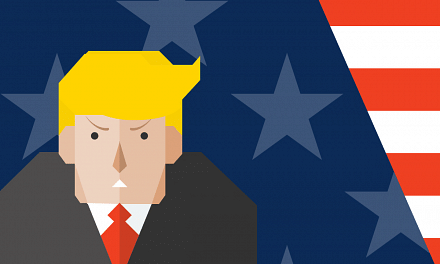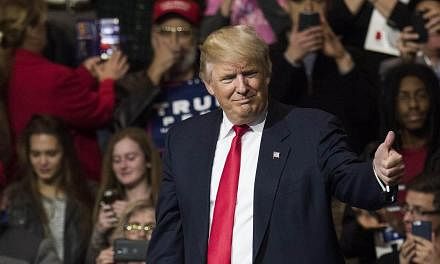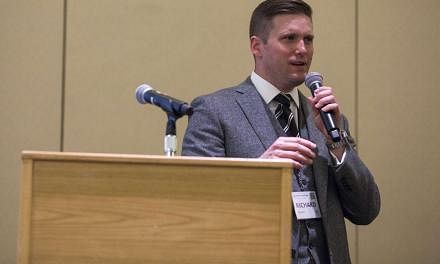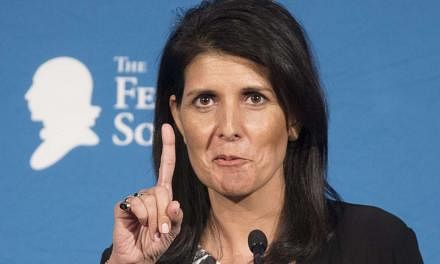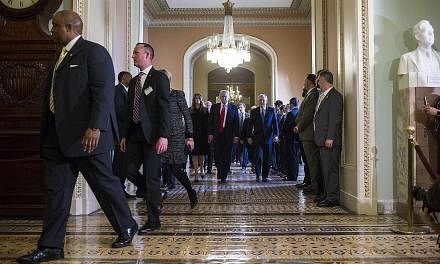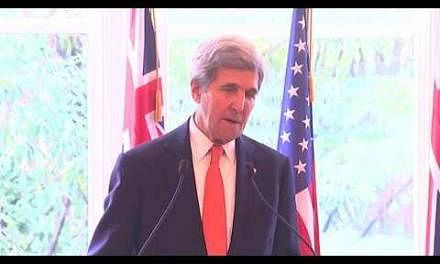Heading into the final week of the presidential campaign, Democratic nominee Hillary Clinton had appeared to be well on her way to the White House.
She sat atop the polls after a string of impressive debate performances, had a significantly larger war chest and a grassroots operation that dwarfed her opponent's.
Her Republican opponent, Mr Donald Trump, meanwhile, was flailing under an avalanche of bad news stemming from a string of women accusing him of sexual assault.
Yet, he emerged with a comprehensive victory yesterday.
So what went wrong for Mrs Clinton and what went right for him?
The initial post-mortem from analysts suggests a perfect storm of factors that ultimately sank Mrs Clinton's prospects.
The first was what appeared to be a fundamental misreading of the white working-class voter.
While Democrats had long assumed that the growing diversity in the American electorate would deliver victories in the general election, Mr Trump proved that a campaign focused on states with predominantly white populations in the north remains a viable election strategy.
Professor Glenn Altschuler, an American Studies expert at Cornell University, said: "If in 2008, President Barack Obama won on a slogan of hope and change, Donald Trump has won on a slogan of anger and change, and that anger is aimed especially at working-class white males, it involves some scapegoating of minority groups... and tapping the anti-establishment anger of those voters."
There was also a perception that Mrs Clinton would not likely do worse than Mr Obama did among white voters, but this too proved incorrect. Though Mr Obama lost white voters by huge margins in the south, he actually won many in the north of the country. It was those northerners that ended up deserting Mrs Clinton in a big way.
The problem was compounded by what turned out to be an overconfidence in the ability of the superior Democratic Party ground game to mobilise voters.
Exit polls show that while Mr Trump outperformed 2012 Republican nominee Mitt Romney by significant margins among blue-collar white workers, Mrs Clinton never reached the same level of support Mr Obama had among minorities. The supposed edge among Hispanic voters never materialised, with the large Hispanic population in Florida failing to deliver the state for her.
"The fact of this election is that the vaunted get-out-to-vote machine of Hillary Clinton and the Democratic Party did not work," said Prof Altschuler, who noted a series of issues, including WikiLeaks and the shock eleventh-hour announcements by the Federal Bureau of Investigation (FBI), could have turned off potential Clinton voters.
As Mr Trump's victories in many of the swing states were by margins of less than 2 per cent, Prof Altschuler noted that a Democratic Party turnout that matched 2012's would have won the day.
A failure of polling agencies to accurately capture the mood, especially in the Midwest, similarly led campaigns to miss warning signs. Mrs Clinton had not set foot in Wisconsin since losing the primary there in April, assuming the large polling leads and the fact that the state had not voted Republican since 1984 made it a lock for Democrats.
Several possible explanations have been floated for why polling appeared to have misjudged the mood in the Midwest, ranging from a difficulty in assessing the likelihood a voter with a spotty voting record would turn up at the polls to something known as the social desirability effect.
"Perhaps they actually supported Trump but there was some sense out there, because of his remarks about women and minorities, that it was somehow impolite to be for Trump publicly," said Dr Aaron Houck of the Queens University of Charlotte in North Carolina.

